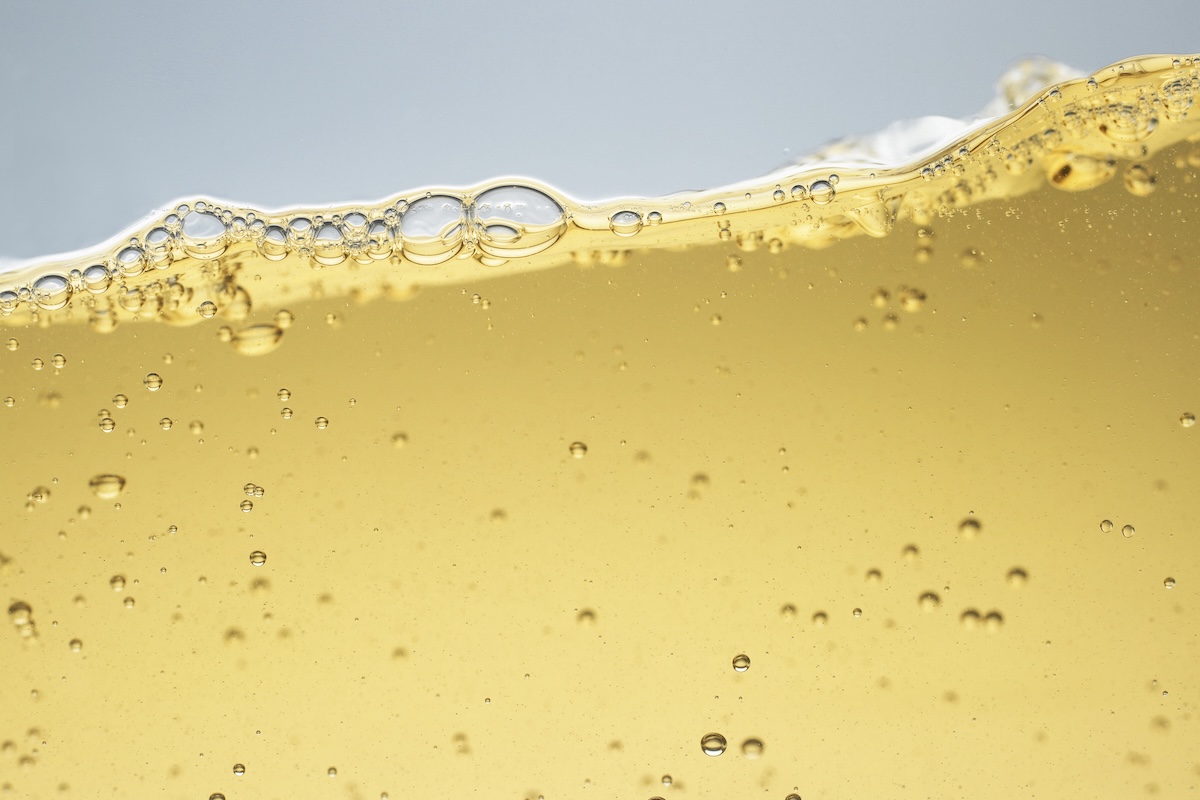One of the most common questions pregnant women ask me is whether they can drink alcohol or not. For many people, it’s a simple choice to abstain from drinking during pregnancy. However, it’s also reasonable to ask: is there a difference between heavy drinking (which we know causes issues) and a celebratory glass of champagne at a party? What are the real risks when it comes to light or occasional drinking?
There is no question that very heavy drinking during pregnancy is bad for your baby. Binge, or heavy, drinking (that’s more than four or five drinks at a time) in the first trimester can cause physical deformities and, in the later trimesters, cognitive problems. These problems can occur even with infrequent binges. If you are pregnant and are binge drinking, stop.

However, this does not directly imply that light or occasional drinking is a problem. At least in the U.S., one phrase I often hear is “No amount of alcohol has been proven safe.” The implication, I suppose, is that we know that there exists a level of drinking that is bad, so we should assume all other levels are bad until proven otherwise. I think this is flawed logic.
Looking at the data can help us navigate this confusing issue. There are three main concerns about drinking during pregnancy: child behavior problems, low IQ, and miscarriage and premature birth risk. I discuss them below, and I do an even deeper dive into the studies in Expecting Better.
What happens when you drink during pregnancy?
When alcohol enters your digestive system, your liver processes it into a chemical called acetaldehyde and then into acetate. The acetaldehyde is toxic to other cells, and, depending on how quickly you drink, it can remain in your bloodstream.
You share your blood with your baby through the placenta; acetaldehyde, which remains in your bloodstream, is therefore shared with the fetus. Your baby actually can process some alcohol, but not as much as an adult (obviously). If too much acetaldehyde is passed to the baby, it can get into the tissues and impact development.
When you drink slowly, you metabolize much of the alcohol before it would get to the fetus. If you drink quickly, your liver cannot keep up and toxins are passed to the fetus. This is why binge drinking is so bad, but it also illustrates why negative effects of light drinking do not follow directly from negative effects of heavy drinking.
Concern #1: Child behavior problems
One big worry about drinking during pregnancy is child behavior problems later, including aggression and other externalizing behaviors. Among the best studies of the behavior issue is one published in 2010 in the British Journal of Obstetrics and Gynecology. There are a few things that make this a reliable study: it’s pretty large (3,000 women), and it collected information about maternal drinking during pregnancy (at 18 and 34 weeks). Asking people about their behavior while they are doing it tends to be more reliable than asking them to remember later on. The study also followed the children of these women from birth through the age of 14; it looked at behavior problems starting at age 2.
The other thing I liked about this study was that it was run in Australia, where recommendations on drinking during pregnancy are more lax than in the U.S. Because drinking during pregnancy in the U.S. is judged so harshly, the group of women who drink during pregnancy are very different from those who do not in other ways, including other possibly risky behaviors. In Australia (and European countries), where society is more permissive in this regard, it’s less likely that the variation in drinking reflects variation in other behaviors.
The paper concludes that there is no evidence that more drinking leads to higher levels of behavior problems.
This is not to say that one cannot unearth studies that find that light drinking is a problem; the issue is that those studies are deeply flawed. One notable example was published in the journal Pediatrics in 2001 that concluded that even one drink a day causes behavior problems.
The problem (or at least one problem) with this study is that cocaine use during pregnancy was reported by 18% of the women who didn’t drink at all and by 45% of the women who had one drink per day, meaning that the drinkers in this study were a lot more likely to be cocaine users. Maybe the problem is that cocaine makes a child more likely to have behavior problems, not light drinking.
One of the key aspects to a good study about drinking during pregnancy — such as the one I liked above and ones I’ll discuss later in this article — is that the groups of women who drank different amounts are not that different in other ways. If this were not the case, we would be worried that the other differences among the women, not the drinking itself, were responsible for the behavior problems. This is the main concern about drawing causal conclusions.
This last study failed on that count.
Concern #2: Impacts on cognitive ability
Another big concern with alcohol is that it might impact child cognitive ability.
Again, my favorite study on this issue comes out of Australia. It has a lot of the same high-quality features discussed above: large study, drinking information collected during pregnancy, long-term follow-up. And, of course, the fact that it was run in Australia. This study started in the early 1980s by asking about 7,200 pregnant women about their drinking during pregnancy. Roughly 5,000 of their children completed an achievement test at age 14.
Just as in the study of behavior, there is no evidence here to suggest that the children of light drinkers (one or fewer drinks per day, no binge drinking) are worse off than those of women who drink nothing. In fact, their scores are higher on average (although these results are not statistically significant — they may just reflect random variation).
A very similar study in England interviewed women in early pregnancy about drinking patterns and then gave their children an IQ test at age 8. Same result: no impact of drinking on IQ.
Concern #3: Miscarriage and premature birth risk
The final concern that comes up is about binge drinking and miscarriage in the first trimester. Is this also a concern when it comes to light drinking?
In the case of premature birth, the evidence from several studies suggests no. As with IQ, there is no evidence of a link between preterm birth and light drinking (again, less than one drink per day).
The evidence on miscarriage in the first trimester is a bit more mixed. A review article from 2007 summarized a number of studies. Several suggested there was no relationship between light drinking (in this case, up to one drink a day) and miscarriage. There were studies that suggested a link in particular subgroups (like among smokers), but the review dismissed these as largely unreliable. It concluded that there was no strong evidence for (or against) a relationship between light drinking and miscarriage.
Somewhat at odds with this, however, is a study released in 2012 that analyzed the behavior of almost 100,000 Danish women and found that even light drinking (two or more drinks a week) was associated with an increased risk of miscarriage in the first trimester. These effects were fairly large — twice the risk of miscarriage for women drinking four or more drinks a week, relative to those who drank none. This study wasn’t perfect; it is missing some important controls, like whether women were nauseous, which relates to both miscarriage and drinking behavior. Still, this may argue for limiting alcohol consumption more in the first trimester.
Does amount matter?
There’s a huge range between binge drinking and light drinking. So where is the line? If five at a time is bad and one at a time is not, what about two or three?
It turned out to be hard to answer this very precisely. For one thing, the range here is big — one and a half drinks a day is presumably less bad than four and a half. In addition, the speed of drinking matters, so it’s not even clear how we would frame this comparison. The sample sizes are also very small, so it is difficult to be precise.
My bottom-line read of the evidence is that light drinking does not have negative impacts. In fact, I feel there is no credible evidence that drinking an occasional drink in the first trimester and up to a drink a day in later trimesters affects pregnancy or child outcomes. Of course, this is sensitive to timing — seven drinks a week does not mean seven shots in an hour on a Saturday night. Both the data and the science suggest that speed of drinking, and whether you are eating at the same time, matters. Drink like a European adult, not like a fraternity brother.
Closing thoughts
I believe the evidence supports consumption of alcohol in moderation. This means up to one drink a day in the second and third trimesters, and a couple of drinks a week in the first. In fact, for the most part studies fail to show negative effects on babies even at levels higher than this. By “a drink,” here I mean a standard drink: four ounces of wine, one ounce of hard liquor, or 12 ounces of beer. Even so, many people choose to avoid alcohol in pregnancy. That is a perfectly reasonable decision! If this is you, non-alcoholic beer is a great option.
So why are official recommendations about alcohol consumption during pregnancy so cautious? One is overinterpretation of flawed studies. But the bigger thing, I think, is the concern expressed to me over and over again by doctors that if you tell people they can have a glass of wine, they’ll have three (or one gigantic glass). Even if one isn’t a problem, three are. Better to say you can’t have any, as that rule is easy to understand.
I can see the argument here. But, to put it mildly, I’m not crazy about the implication that pregnant women are incapable of deciding for themselves. I strongly believe it’s important to arm women with the data so they can have the opportunity to form their own decisions.
The bottom line
- There is no good evidence that light drinking during pregnancy negatively impacts your baby. This means up to one drink a day in the second and third trimesters and one to two drinks a week in the first trimester.
- Heavier drinking has negative impacts, especially in the range of four or five drinks at a time. This should be avoided.
- Speed matters: no vodka shots.
- Deciding to have the occasional drink during pregnancy is a personal choice. Consult your doctor, and make the decision that is best for you.





















Log in
Hi Emily,
I now have a 13-month-old boy! I found out I was pregnant at four weeks and had been drinking quite a lot during the first 2.5 weeks as it was Xmas and New years period! After I found out I was pregnant, I had one glass of wine at 4 weeks, one glass of wine at 12 weeks and one at 21 weeks. Based on the data you have looked at do you think this could cause long-term cognitive damage? So far he is developing fine! A few minor fine motor delays, however developing in all other areas! Still feeling lots of mum guilt with the things Im reading online!
Hey! I read online, can’t remember where, that the harm to baby caused by drinking before 8 weeks will heal itself as long as the drinking does not continue because the cells are developing and changing so rapidly and so much at that stage. I know it’s not the most evidence-based answer, but it gives me comfort since I also drank heavily once during early pregnancy before I found out I was pregnant.